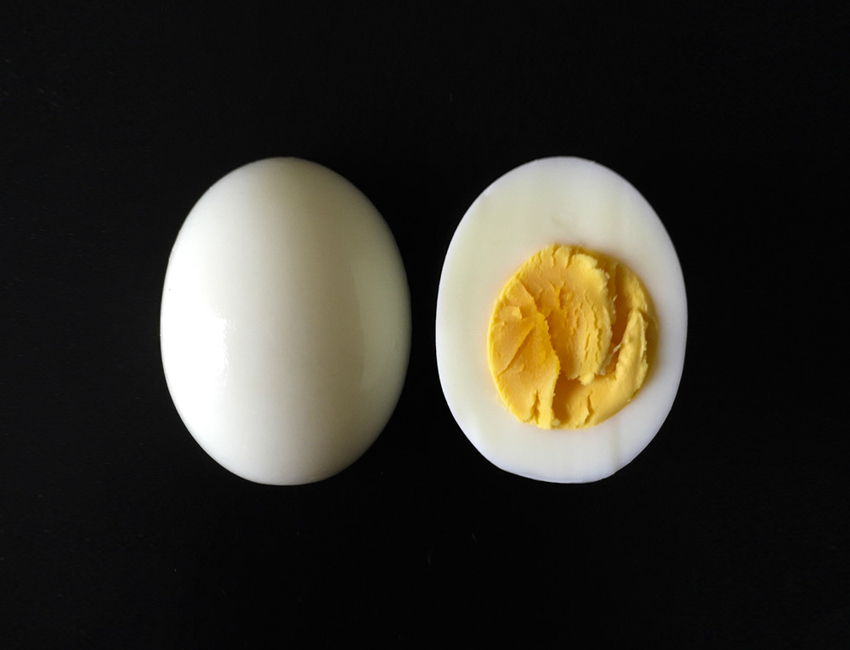Do you want to know how to boil an egg like a pro?
There are many articles written which continue to create momentum for these myths. Unfortunately, there is little scientific truth behind these theories. Based on years of professional experience and refined methodology, here are the top 5 myths debunked in the professional kitchen.
Myth: Use room-temperature eggs
Truth: Go ahead and use refrigerated eggs if you want
The reason behind this myth is that your eggs will crack if they are too cold, and it affects cooking times. I say that waiting for eggs to reach room temperature affects my cooking time!
Yes, extreme temperatures may cause your egg to crack, however adding eggs to roaring boiling water can crack your eggs for other reasons as well, like being hit against each other or the pan.
For this reason, only add your eggs to simmering water and use cooking times based on your egg temperature. And know that eggs crack for many reasons including dropping them into a deep pan or adding too many at once, so be gentle.
Myth: Use old eggs
Truth: Fresh is best!
It is said that using old eggs makes peeling easier. I believe this is said because the older the egg, the more the white softens and pulls away from the shell creating air pockets. However, these air pockets become divots or bubbles in your otherwise perfectly smooth egg. And it makes no difference for peeling. Much more important than age is how you cook them.
The secret to easily peeling an egg is to peel it in a bowl of cold water or under running cold water because eggs shells are porous, and this helps detach the shell.
Myth: Start with cold water
Truth: Start with simmering water
A hot start produces easier-to-peel eggs because they coagulate faster leaving less time to bind with the shell. Although, that being said be careful. When eggs are started in boiling water, the exterior cooks faster than the interior. Always start eggs in simmering, previously boiling water and bring to a boil for an evenly cooked egg.
Myth: Exact timing does not matter
Truth: For a perfectly cooked egg, use exact times
When eggs are overcooked, they will congeal with the shell and be very hard to peel.
When eggs are overcooked, they will congeal with the shell and be very hard to peel.
Have you ever noticed the gray ring around your otherwise nice yellow yolk? That is a sign of overcooking. Also, when eggs are overcooked, they will congeal with the shell and be very hard to peel. In my experience, set your clock for approx. 12 minutes for hard boiled eggs and 5 minutes for a creamy yolk.
Myth: Vinegar is not necessary
Truth: Vinegar is the fix-all ingredient to boiling an egg
As we mentioned, egg shells are porous. Adding a small amount of vinegar to your water helps to coagulate the eggs whites faster. The egg will stay together inside the egg before it boils and you will not have egg white particles in your water which is great if you happen to get a small crack in one of your eggs. Also, this helps with peeling your eggs.
So, go ahead and use fresh eggs straight from the refrigerator into simmering vinegar water next time for perfectly boiled, peelable eggs!
Looking for ways to use hard boiled eggs, check out my Classic Deviled Egg Recipe with 5 variations perfect for any occassion.

